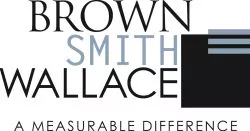The Occupational Safety and Health Administration (OSHA) recently issued final regulations governing employee retaliation and whistleblower protection under Section 18C of the Fair Labor Standards Act (FLSA), which was added under the Affordable Care Act (ACA). This provision protects employees who may have been subject to retaliation for receiving premium tax credits for coverage bought from a Health Insurance Marketplace (also known as an "Exchange"), or for reporting potential violations of key ACA requirements (such as the provision of preventive services without cost-sharing, or the prohibition on rescission).
The regs, which are already in effect, establish final procedures and timeframes for handling retaliation complaints. They make only minor changes to the interim final regulations in effect since February 2013. Here are some highlights.
Credits and Penalties
Internal Revenue Code Section 4980H requires applicable large employers to either:
- Offer a certain level of health coverage to enough full-time employees (and offer dependent coverage), or
- Pay a penalty to the IRS if any full-time employee receives a premium tax credit for coverage bought via a Health Insurance Marketplace.
The final regulations clarify that an employee will be considered to have "received" a premium tax credit not only when such a credit is allowed on the individual's tax return, but also when a Marketplace finds the employee eligible for advance payment of the credit.
The preamble notes that an employee's receipt of a premium tax credit and the related potential for a Sec. 4980H penalty could create an incentive for retaliation. In particular, OSHA acknowledged the "compelling concerns" regarding the potential for retaliation in connection with a mere inquiry by an employee regarding the employer's coverage options.
The agency concluded, however, that no changes were needed to the regulations because existing case law under analogous antiretaliation provisions supports protections for employees seeking this information. (An employee who anticipates applying for an advance payment of the premium tax credit may seek plan coverage information from the employer in order to complete the application for Health Insurance Marketplace coverage.)
An action taken by an employer to dissuade an employee from applying for premium tax credits — for example, a threat to reduce an employee's hours — would violate FLSA Section 18C. The same concern would arise if such retaliatory action were taken when a Health Insurance Marketplace, as required under federal regulations, notified an employer that an employee had received an advance payment of the premium tax credit.
Other Issues
Interestingly, OSHA declined to add specific provisions requiring employers to post notices regarding whistleblower rights under FLSA Sec. 18C. However, the preamble to the regs indicates that the agency commonly orders posting of a whistleblower rights notice in meritorious whistleblower cases.
The regs do address filing complaints. That is, a complaint under FLSA Sec. 18C must be filed within 180 days of when the alleged violation occurs. The final regulations include a new example of when the time for filing a complaint may be "tolled" — in other words, delayed. Complaints aren't required to be in any particular form and may be oral or in writing. An online complaint form is available on OSHA's website.
In addition, the preamble recognizes the potential overlap between FLSA Sec. 18C and other laws — including the Employee Retirement Income Security Act. It indicates that the whistleblower protections don't replace or diminish any protections that may be available under other federal or state laws, or under any collective bargaining agreements.
Proactive Steps
Employers and advisors need to be mindful of the employee protections under FLSA Sec. 18C, as well as the procedures governing the handling of retaliation complaints. The immediate effective date is permissible because the regulations are "interpretative" in nature, explaining and reminding parties of existing statutory and regulatory duties.
More and more employers are beginning to receive notice that employees have enrolled in Health Insurance Marketplace coverage with advance payment of the premium tax credit. So you may wish to take proactive steps to guard against compliance risks, such as updating your existing antiretaliation policies to incorporate these protections and conducting related staff training.
If you have questions about OSHA's final regulations under the ACA, please contact Ron Present, Partner and Health Care Industry Group Leader, at rpresent@bswllc.com or 314.983.1358.
The content of this article is intended to provide a general guide to the subject matter. Specialist advice should be sought about your specific circumstances.

